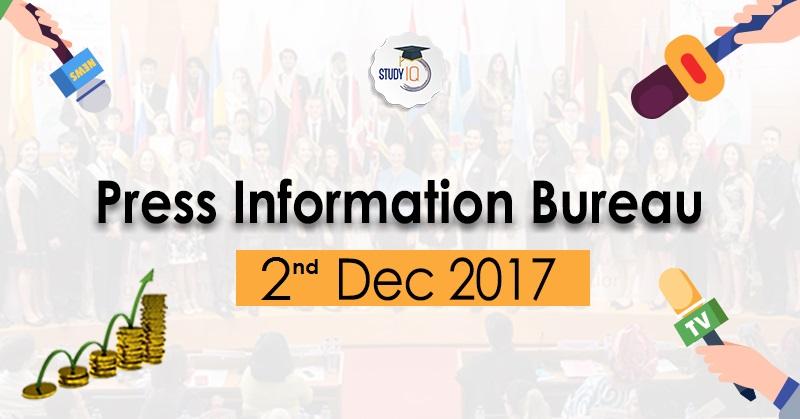Table of Contents
MEA
- External Affairs Minister Sushma Swaraj today made a stopover at Tehran on her way back from Russia, and held a luncheon meeting with her Iranian counterpart Javed Zarif during which issues of mutual interests were discussed.
- Mrs. Swaraj was returning from Sochi where she attended the annual summit of the Shanghai Cooperation Organisation(SCO).
- External Affairs Ministry Spokesperson Raveesh Kumar tweeted that the two ministers are understood to have reviewed the implementation of the Chabahar port project in which India is a key partner.
Reservation
- The Andhra Pradesh Assembly today unanimously passed the Kapu Reservation Bill to provide five per cent quota to Kapu community in education and employment.
- The reservation to Kapu community will be given by including them in the Backward Caste list.
- Chief Minister Chandrababu Naidu said that Justice Manjunath commission had recommended reservation to the Kapu community.
- He said, the bill will be sent to Centre for its consent.
- He also said that the Centre will be requested to include this reservation in the 9th Schedule, to insulate it from judicial review.
- The state already has 29 per cent reservation for Backward Castes. Apart from this, 15 per cent and 6 per cent reservations exist for Scheduled Castes and Scheduled Tribes.
- With the quota for Kapus, the total reservation in the state goes up to 55 per cent, beyond the 50 per cent cap set by the Supreme Court for reservations.
- The Chief Minister assured that the existing Backward Castes will not be affected by this decision.
- The Kapu community, with 27 per cent population in the state, has been demanding reservations for decades.

- Pakistani leaders were in awe of Chinese President Xi Jinping when he visited Islamabad on April 20, 2015, and received him with full honours.
- Xi had described his visit as a “second home coming,” reaffirming that the bilateral friendship remained higher than the mountains.
- Xi brought with him a magnificent deal of the kind Pakistan could not refuse — a $46 billion proposal for a CPEC fully paid for by the Chinese
- It was a mega-project that covered energy and infrastructure projects and designed to lift Pakistan’s underperforming economy.
- Twice as much FDI that Pakistan had received since 2008.
- 20% of Pakistan’s $270 billion economy.

- For the Chinese the project is an important link to their grandiose Belt Road Initiative
1.Access to Gwadar for obvious geostrategic and economic reasons.
A.Access to a deep-water port in the Arabian Sea
B.An opportunity to outflank a rival in south Asia
2.Establishing a security and communication grid all over Pakistan.
A.A fibre optic link between Pakistan and China that covers the entire country and reaches Gwadar is now part of the CPEC.
B.Enable the Chinese to popularise their culture.
3.The third is establishing control over Pakistan’s agriculture for feeding its impoverished Kashgar district of Xinjiang.
A.Thousands of acres of agricultural land will be leased out to Chinese companies for agricultural projects.
- In March, the Nawaz Sharif government informed the Pakistan National Assembly that Chinese firms were given a number of tax concessions across the entire CPEC projects as incentive for working in troubled zones.
- The Chinese will have industrial parks or special exclusive economic zones that should meet specific conditions with a perfect infrastructure for their investment and projects, with Chinese employees.
- The sudden announcement in November that Pakistan had withdrawn its proposal to include the long-stalled Bhasha-Diamer Dam as part of the Chinese-financed China Pakistan Economic Corridor (CPEC) caused quite a stir in Pakistan.
- Both the World Bank and the ADB had refused to fund this project without a ‘No Objection Certificate’ from India.
- Pakistan approached China in May and Beijing agreed to get this project off the ground after it had languished for 15 years.
- There were preconditions about ownership, maintenance costs and collateral security.
- Apparently, these were unacceptable to Pakistan.
- This perhaps marks the first chink in the CPEC, a far cry from the euphoria seen two years ago.
- In addition, by 2030 Pakistan would have to pay back $90 billion and this would be an additional burden.
- Some Pakistani parliamentarians fear that the CPEC could mark the arrival of another East India Company.





















 WhatsApp
WhatsApp